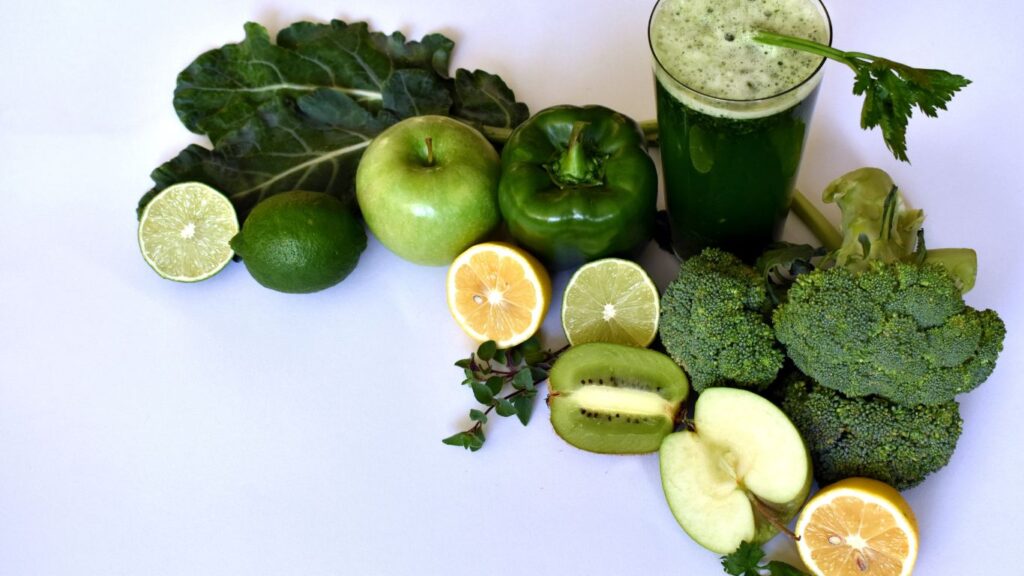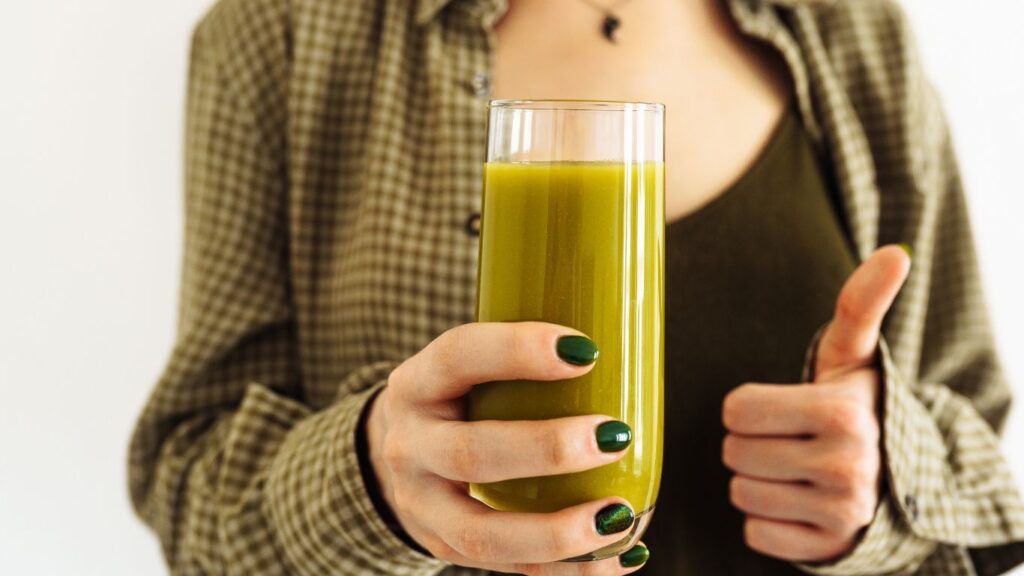In a world where our bodies are constantly bombarded by pollutants, processed foods, and the stress of modern living, detoxification has emerged as a crucial ally for maintaining optimal health. Detoxification is more than just a wellness trend; it’s a vital process that helps eliminate toxins from our bodies, enhancing our overall well-being and enabling our natural healing mechanisms to function at their best. This blog delves into 10 effective and practical ways to detoxify the body. From the foods we eat to the lifestyle choices we make, each method is backed by scientific principles and aims to support the body’s inherent detox processes. By adopting a holistic approach to health, we not only cleanse our bodies of harmful substances but also lay the foundation for a life of vitality and wellness. Let’s explore how we can rejuvenate our bodies and thrive in today’s challenging environment.
10 Effective Daily Habits for Body Detoxification
- 1. Stay Hydrated
- 2. Eat a Balanced Diet Rich in Antioxidants
- 3. Practice Regular Exercise
- 4. Get Adequate Sleep
- 5. Reduce Intake of Processed Foods and Sugar
- 6. Incorporate Detoxifying Superfoods
- 7. Try Intermittent Fasting
- 8. Limit Alcohol and Tobacco Use
- 9. Engage in Stress Reduction Techniques
- 10. Consider Detoxification Supplements and Herbs
1. Stay Hydrated

Water is indispensable for life, playing a pivotal role in flushing out toxins and maintaining the body’s natural balance. Acting as a natural detoxifier, it aids in the elimination of waste through urination, perspiration, and breathing. Health authorities commonly recommend drinking about 8-10 glasses (approximately 2 liters or half a gallon) of water daily to stay properly hydrated. Starting the day with a glass of warm lemon water can kickstart the digestive system, enhance metabolism, and provide a gentle detox. This simple habit not only hydrates but also infuses the body with vitamin C, promoting overall health and well-being.
2. Eat a Balanced Diet Rich in Antioxidants

Antioxidants are nature’s defense mechanism against oxidative stress, a condition that occurs when there’s an imbalance between free radicals and antioxidants in your body. This imbalance can lead to cell damage and contribute to a range of diseases and aging. By neutralizing free radicals, antioxidants play a crucial role in detoxifying the body and protecting it from harm. To harness these benefits, incorporating antioxidant-rich foods into your meals is key. Berries, dark leafy greens, nuts, seeds, and green tea are excellent sources. Also, don’t forget about the potent antioxidants found in spices like turmeric and in vegetables such as broccoli and bell peppers. These foods not only fight oxidative stress but also support the body’s natural detoxification processes.
3. Practice Regular Exercise

Regular physical activity is a cornerstone of health, significantly boosting the body’s natural detoxification processes. Exercise enhances circulation, ensuring that nutrients reach vital organs while toxins are efficiently removed. It stimulates the lymphatic system, which filters toxins out of the body. Furthermore, sweating during exercise helps eliminate toxins through the skin. Incorporating varied types of exercises can optimize detoxification benefits: yoga promotes lymphatic flow and reduces stress, aerobics increases oxygen and blood circulation, and strength training enhances muscle mass, boosting metabolism. Together, these activities create a comprehensive detoxification regimen, aiding in the elimination of toxins and contributing to overall well-being.
4. Get Adequate Sleep

Sleep is not just restorative for the mind and body but also plays a crucial role in detoxification, especially for the brain. During sleep, the brain’s glymphatic system becomes active, efficiently removing waste products accumulated throughout the day, including proteins linked to neurodegenerative diseases. To enhance sleep quality and support this natural detox process, consider adopting good sleep hygiene practices: establish a consistent sleep schedule, create a relaxing bedtime routine, ensure your sleeping environment is dark and cool, limit exposure to screens before bedtime, and avoid caffeine and heavy meals in the evening. These habits can significantly improve sleep quality, thereby aiding in the body’s natural detoxification processes.
5. Reduce Intake of Processed Foods and Sugar

Processed foods and sugar contribute significantly to the body’s toxin load, exacerbating inflammation and overloading the liver, which is essential for detoxification. These foods often contain harmful additives and high levels of refined sugars, leading to weight gain, insulin resistance, and other health issues. To reduce their consumption, start by incorporating whole foods into your diet, such as fruits, vegetables, whole grains, and lean proteins. Swap sugary snacks for natural sweeteners like fruit, and choose water or herbal teas over sugary beverages. Cooking meals at home can also help control ingredients, ensuring a healthier, more toxin-free diet.
6. Incorporate Detoxifying Superfoods

Garlic is celebrated for its potent detoxification support, thanks to its high sulfur content, which aids in expelling toxins and may enhance liver function. Beetroot is another powerhouse, rich in antioxidants and nitrates that improve blood flow and liver health, facilitating the elimination of toxins. Green tea, abundant in catechins, specifically EGCG (epigallocatechin gallate), supports liver function and boosts the body’s metabolism, aiding in the efficient removal of toxins. Incorporating these superfoods into your diet can bolster your body’s natural detoxification processes, helping to cleanse your system and enhance overall health.
7. Try Intermittent Fasting

Intermittent fasting involves cycling between periods of eating and fasting, promoting weight loss and improving metabolic health. This practice can also support the body’s natural detoxification processes by giving the digestive system a rest and enhancing the body’s ability to remove toxins. Common fasting schedules include the 16/8 method, where you fast for 16 hours and eat during an 8-hour window, and the 5:2 method, which involves eating normally for 5 days and reducing calorie intake on 2 non-consecutive days. Before starting any fasting regimen, it’s crucial to consult a healthcare provider to ensure it’s appropriate for your health condition and lifestyle.
8. Limit Alcohol and Tobacco Use

Reducing alcohol and tobacco intake is vital for enhancing the body’s detoxification capabilities. Alcohol and tobacco contain toxins that burden the liver and lungs, impeding their ability to filter and eliminate harmful substances efficiently. Cutting down on these can lead to improved liver function and respiratory health. Practical tips for reducing consumption include setting clear limits for intake, avoiding situations where temptation is high, and replacing these habits with healthier activities, such as exercise or hobbies. Gradually decreasing consumption, seeking support from friends and family, and possibly professional help, can also facilitate a successful reduction in alcohol and tobacco use.
9. Engage in Stress Reduction Techniques

Stress directly impacts the body’s ability to detoxify, as it can lead to an accumulation of toxins by affecting the liver’s detoxification processes and increasing inflammation. High stress levels also disrupt the balance of digestive bacteria, hindering the body’s natural waste elimination channels. To mitigate stress and its effects on toxin accumulation, adopting practices like meditation, deep breathing exercises, and mindfulness can be incredibly beneficial. These techniques help calm the mind, reduce the physical symptoms of stress, and restore balance, thereby supporting the body’s detoxification pathways. Regularly incorporating these practices into daily routines can significantly enhance overall detoxification and health.
10. Consider Detoxification Supplements and Herbs

Natural supplements and herbs like milk thistle and dandelion root have long been recognized for their detoxification support. Milk thistle is famed for its liver-protecting properties, aiding in the regeneration of liver cells and the removal of toxins. Dandelion root, on the other hand, supports detoxification by promoting healthy liver function and aiding in digestion. However, it’s crucial to approach these supplements with caution. The effectiveness and safety can vary based on individual health conditions and interactions with other medications. Therefore, consulting with a healthcare professional before starting any new supplement regimen is essential to ensure it aligns with your health needs and goals.
Also read: The Ultimate Guide to Liver Health: Tips for Protecting Your Body’s Detoxifier
